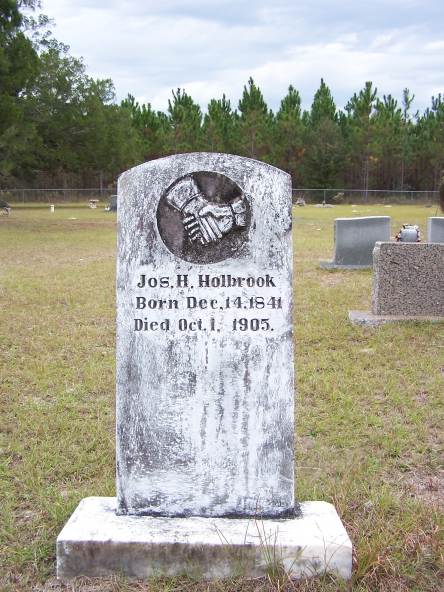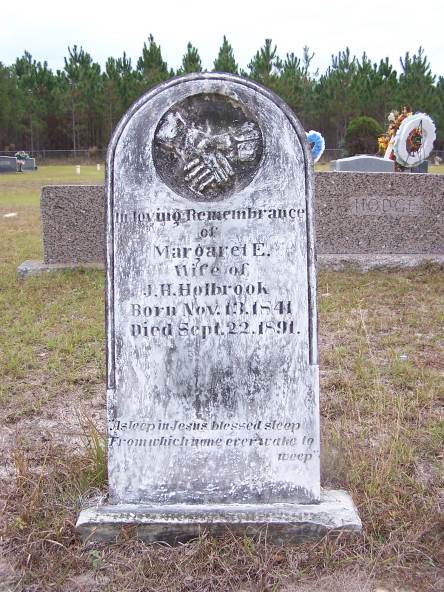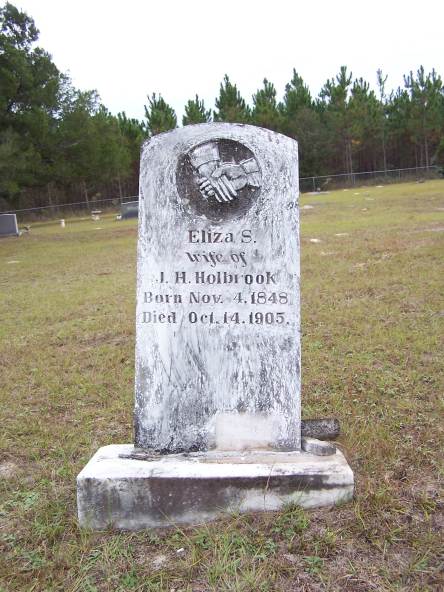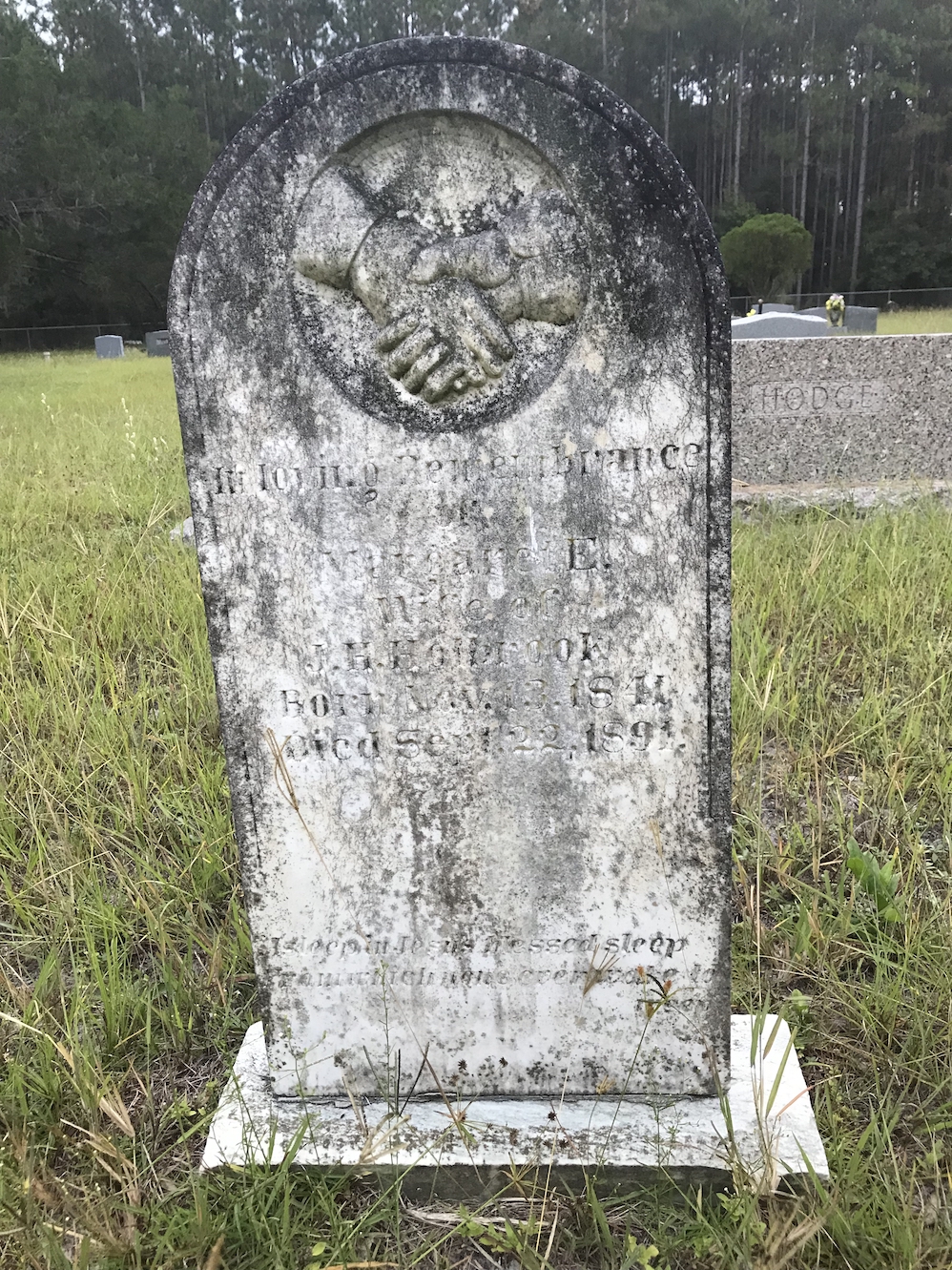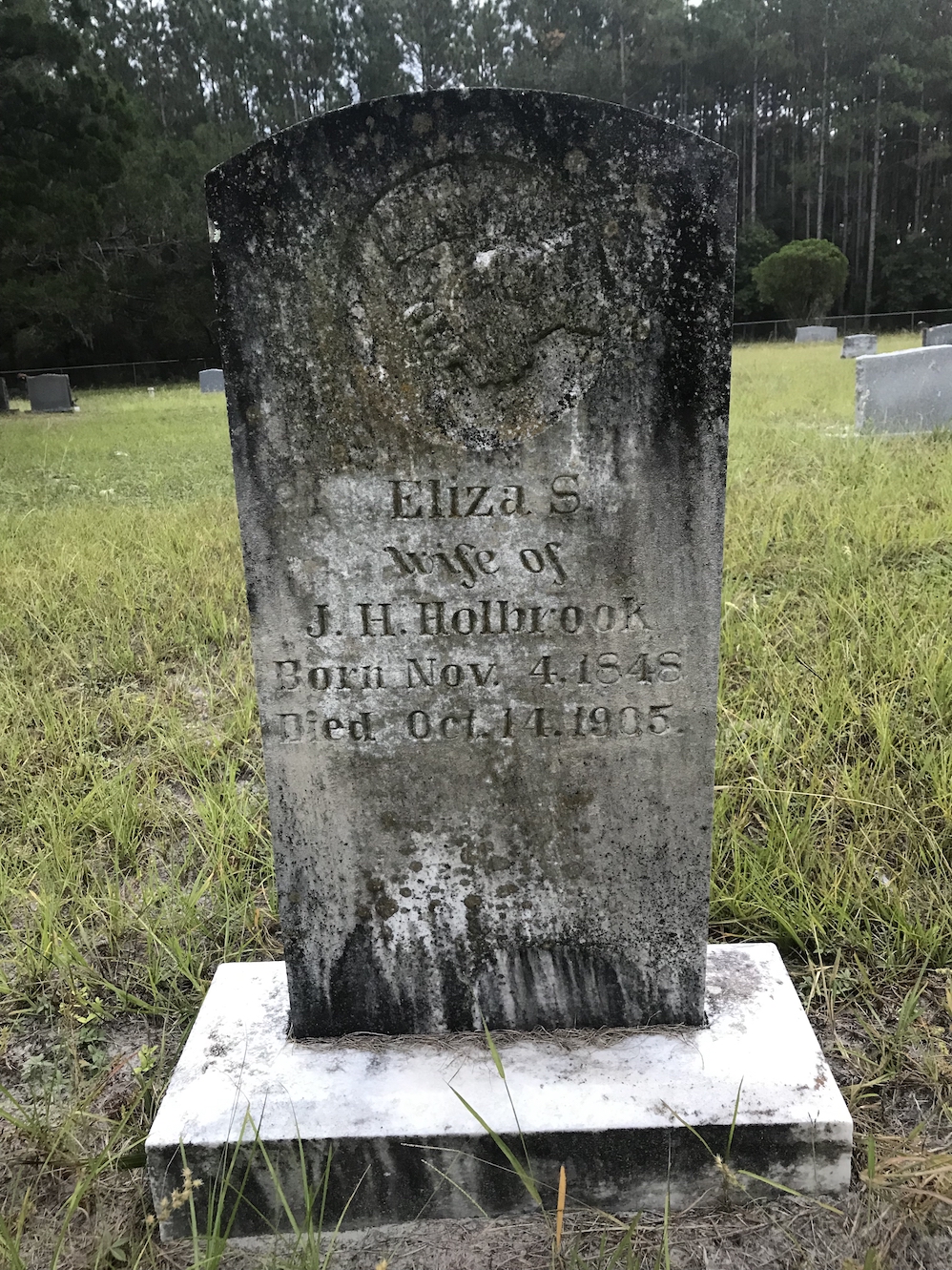Joseph H. Holbrook*
1841-1905
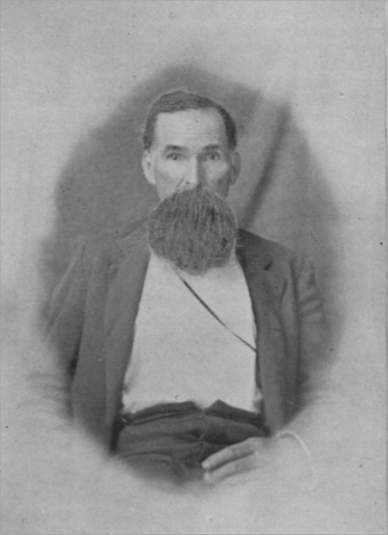
Biographical Sketch On The Life Of J.H. Holbrook
In this sketch of the life of Joseph H. Holbrook we have another lesson in the struggles in poverty and obscurity to prominence and usefulness in human society; also a lesson how one struggles from the bondage of superstition and denominationalism to the light and liberty in Christ Jesus. These lessons ought to encourage any one who may be handicapped by the circumstances of life. Any one who wills to become good and useful may do so.
J. H. Holbrook was born on December 14, 1841, in Perry County, Tennessee. His parents moved to Hickman County while he was quite young. His parents were accustomed to hard work and poverty. Young Holbrook learned the lesson of economy and self-denial in childhood. He knew what it was to be pinched with poverty and endure hardships in this life. He had very few opportunities for an education. The school terms were short, and he never had the opportunity to attend a full session. There were very few churches of any kind in his younger days, and the preachers were not educated.
Young Holbrook's mother was a member of the Primitive Baptist Church. His father was one who waited for the "call." His mother had deep convictions and entertained the preachers of her faith in her home with a hope that her husband would receive the "call" that he was one of the elect. Young Holbrook loved his father and knew that he was a good man. He could not understand why his father, who, wanted to go to heaven and who was deeply interested in religion, was not chosen. Much of the preaching that he heard was only the relation of experiences. The preachers always started in relating their experiences with the fact that they were very wicked in their former days, but that God had saved them. Young Holbrook could not understand why the Lord would call to be his children the extremely wicked men, but would not call his father.
On December 14, 1862, J. H. Holbrook enlisted in the Confederate Army. He was twenty-one years old the day that he enlisted. He made a good soldier, as he was used to the hardships of poverty and self-denial. He was captured by the Federal Army at Nashville, Tenn., December 15, 1854. He was carried as a prisoner of war to Camp Douglass, at Chicago, Ill., and remained a prisoner till the war closed. When he was mustered out of service, he returned home with very little clothes, almost naked, and was seventy-five dollars in debt, with not a penny to pay his indebtedness. He returned home too late that year to plant a crop. He had courted a sweet girl before he enlisted in the army; and so, when he returned in such dire circumstances, he borrowed two dollars with which to buy his marriage license and borrowed a coat in which to get married. He married a girl, to use his own language, "who had nothing but a pure heart and a good stock of religion." His wife was a member of the church of Christ. She began to teach him the way of the Lord. She had a godly influence on him and soon brought him to see the light which is revealed in the New Testament. He had not been married long before he was baptized by E. A. Land, who was preaching in that country.
Brother Holbrook was anxious for his neighbors and relatives to learn the truth, so he began trying to preach. He knew but little about the Bible and had no opportunity to, associate with any preachers who were well informed from whom he could learn. He was forced to study the New Testament. He did this, and within a few years no, other preacher in that country knew more of the word of God than did J. H. Holbrook. He was industrious and exercised good judgment with his economy and bought a little farm. He paid for this farm and accumulated some property. However, his desire to preach the gospel was so great and urgent that he decided to sell his farm and go to school. He did this, and he entered school at Mars' Hill, near Florence, Ala. The justly famous T. B. Larimore was operating the school at that time. Brother Holbrook was older than Brother Larimore, his teacher. He remained in school there two years and preached as he had opportunity in North Alabama. After leaving school, he moved to Fayette County, Alabama. He had nothing left of his farm, save a horse and buggy and his good wife. He lived in Fayette County sixteen years. He preached throughout the counties of Fayette, Lamar, Tuscaloosa, Walker, Marion, Lawrence, Franklin, and Colbert, all in Alabama. He traveled over the mountains and hills and plains on horseback and preached in schoolhouses, under the trees, in private houses, in courthouses, along the highways, and wherever people would assemble to hear him. He was very successful as an evangelist and baptized thousands of people.
One day, while he was preaching, he was interrupted by a man, who said to him: "Parson, water baptism may do for such folks as you; but if I am ever baptized, I want it to be with the Holy Ghost." Brother Holbrook was not in the least excited or disturbed, but calmly said to him: "Well, now, my brother, you bad better take such as you can get. Any preacher can baptize you with water, but God only can baptize you with the Holy Ghost, and he may not consider you of sufficient importance to require such special attention." At another time he was interrupted by another man, who said to him: "If you have not been baptized with the Holy Ghost, I would not give much for your religion." Brother Holbrook replied: "It is of no concern to me whether you would give much for my religion or not. I did not come here, anyway, to auction off my religion; I came to tell you how to live so that you might have a religion of your own. My religion is not on the market." He was asked at one time by one who was interested in the Alabama Christian Missionary Society how much could be raised in his field for missionary purposes. He replied: "I do not know how much can be raised in my field for missionary purposes this year. I have planted my field in cotton, and it is too early in the season yet to tell how it will pan out, but all it makes is for missionary purposes."
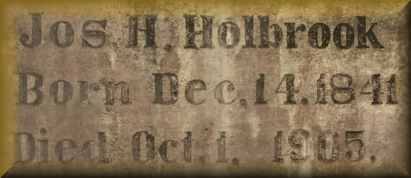
Brother Holbrook was so successful as an evangelist that his services were in demand in other States. He preached extensively in Tennessee, Mississippi, Alabama, Arkansas, Missouri, and Texas. There are prosperous churches in all of these States now which are the result of his preaching. He seldom went into a new section that he did not establish a congregation there. The joy of his life was to plant churches in new territory. Many prominent citizens in the various callings of life today were baptized by J. H. Holbrook. In his latter days he moved from Alabama to Levy County, Florida. For a number of years he was in bad health, but preached as he had opportunity. He was a good man, and lived to do good, loved to do good, and did good all the days of his life. He died at his home in Florida on October 1, 1905. Human society is better because J. H. Holbrook. lived on earth; the cause of Christ has spread and reached the hearts of thousands because he has lived; and many of the redeemed of earth will rejoice at the judgment because J. H. Holbrook influenced them for good while upon the earth.
His wife preceded him some years, and Brother Holbrook left his property so that one or two young men could he educated in the Nashville Bible School, now David Lipscomb College. He not only did good while he lived, but made such arrangements for his property to do good after be was gone. What a beautiful example for others!
-From Biographical Sketches Of Gospel Preachers, H. Leo Boles, Gospel Advocate Company, Nashville, Tennessee, 1932, pages 317-321
Addenda: A note of interest concerning Brother Holbrook should be mentioned here. While in Walker County, Alabama, a young man who came under his influence, and was baptized by him was none other than Charlie Wheeler. Wheeler baptized 6000 people in his lifetime. One of the young men Wheeler taught and converted was Gus Nichols, who in turn baptized over 12,000 people in the course of his own life. Consider the powerful influence of this great man of God!
Another young man who came under Holbrook's influence and was baptized by him was F.B. Srygley at Rock Creek, Alabama. Srygley also became known as a great gospel preacher.
_________________________
Death Of A Noble Woman
Margarett E. Vick was born Nov. 13. 1841. Baptized by Wade Barrett, of Tennessee, when in her sixteenth year and married to J.H. Halbrook Aug, 22, 1865. After seven months of patient, though almost painless, struggle against the steady ravages of wasting consumption, she died, at Bronson, Fla., Sept. 22, 1891.
I first met her in the hill country of North Alabama in the summer of 1875. She was then the efficient and earnest helper of her ever faithful husband in his labors as an evangelist in that rugged region. For more than a week my father's house was their home, and during that time they conducted a very successful meeting at Rock Creek church. The writer of these lines and F. B. Srygley, the well-known evangelist of Lebanon, Tennessee, were among those who were baptized during that memorable meeting. She knows now, what she perhaps never fully understood in this world, though I often tried to make her understand it, how much her steadfast faith, consuming zeal and earnest words of private admonition and exhortation during that meeting helped to decide me and others to turn to the Lord and trust him for salvation.I had long understood the way of the Lord, and for years had been deeply and seriously impressed with the importance of "so great salvation." From early childhood I had listened time after time to the matchless eloquence and inimitable pathos of the beloved Larimore. I loved him then as I love him now, for his godly walk, child-like faith, unfaltering friendship and brilliant talents, and often I felt, when listening to him, a wild desire and consuming anxiety to be a Christian, but somehow I had never yet brought myself up to the supreme test of a complete submission to Christ. All the while there seemed to be a great gulf between what I really was and what I so earnestly longed to be, which I could not muster courage enough to attempt to cross. But when that godly woman came to me with the light of purified heart shining in her face, and the tear-drops of a baptized soul trembling in her eyes I began to see my way clearer. Somehow she seemed to reach across the chasm, grasp my hand and nerve my heart for the leap. Others had explained to me how to become a Christian and had awakened in me a burning desire to be a Christian; but it remained for her to make me feel that I could be a Christian and to lead me to determine that I would be one.
No, I cannot explain how she did it. I only know that she did it. It could hardly have been what she said or the way she said it. In truth she said but little nor said that little well. She was not fluent of speech, her vocabulary was meager, her diction faulty, her grammar defective, her information limited. She was not even a good reader. In truth she read nothing but the Bible and religious books and papers, and it was with difficulty she spelled out the harder words in them. Her appearance was by no means prepossessing. Her dress was plain calico, made by her own hands and evidently cut with an eye to comfort and economy rather than gaudy display.
She wore no jewelry, assumed no society airs, and courted no homage. She seemed always prayerful, occasionally heart-burdened, rarely despondent and never frivolous. She talked constantly of the things pertaining to the kingdom of God and the name of Jesus Christ and never gossiped. Such was the sister Halbrook, who, as the handmaiden of the Lord, during that memorable meeting, gently led my weary soul into the joys of discipleship.
She and her husband came to my father's house on horse-back, and when they departed they went on their way by the same conveyance over the hills to other appointments. Her mission with me did not end there. She assisted others in encouraging me to preach the gospel, and helped to keep alive in me that love of souls which made me feel, with Paul, "woe is me if I preach not the gospel," even to the time of her departure. She encouraged me to go to Mars Hill College, where her husband had prepared himself for the noble work in which they were engaged, and exhorted me often by letters during the weary years of anxious toil since those blessed days, to continue in the good work.
The last time I met her was during a meeting near her humble home at New River, Alabama in the summer of 1889. I was then on a preaching tour, though sorely afflicted with disease. It was with much difficulty and in great suffering that I could stand on my feet long enough to preach a sermon, and all the time, when not in the pulpit, I was suffering intense pain and confined to my bed. My preaching must have been unusually poor, for it is never very brilliant even under favorable circumstances. But I shall never forget her enthusiasm during the meeting. Her ever ready and abundant sympathy brought tears freely from her eyes and gave a motherly tremor to her voice as she would say: "Thank the Lord, Bro. Srygley, for your afflictions. You never could have preached such a sermon as that or moved such hardened sinners as come forward to-day, if you had not been under the chastening hand of God." That was her way. She thanked the Lord for everything. Once when her husband was riding over the hills on horse-back to his appointments, his horse fell at an ugly place in the road, and one of Bro. Halbrook's legs was broken. A messenger was sent with the sad news to the faithful wife at home. Her first words, when the news was imparted, were: "Thank the Lord for ever for his goodness. I am so glad it was not his neck instead of his leg that was broken." She had no appreciation at all of the ludicrous, and whatever of humor may seem to appear in such an expression was entirely lost to her. In truth, the ridiculousness of many of her sayings, as they appeared to others consisted largely in the intense earnestness and reverent piety in which she habitually spoke.
When I was at New River in 1889, her husband was absent on a preaching tour as usual. She was staying at home alone, save the presence of her little niece, an orphan eight years of age whom they were bringing up, for they had no children of their own. She did her own cooking, washing, and house work and worked her garden besides. A lonely time she had of it, to be sure, but she was full of joy at the thought that Joseph was winning souls to Christ. I shall not forget her hallowed influence, nor cease to thank the Lord that ever it was my good fortune to be a co-worker with her in the best of all causes, and if I but finish my course and keep the faith, not the least of my joys at the time of my departure will be the confident home of meeting her in heaven.-F. D. Srygley, Gospel Advocate, 1891, page 626
-Submitted by Wayne Kilpatrick
_________________________
Directions To The Grave Of J.H. Holbrook
In Florida heading south of the city of Gainesville on I-75, at Mile Marker 385, take Hwy 24 (Gainesville/Archer) Exit #75. Head west on Hwy. 24 toward the city of Bronson. From I-75 it is 19.4 miles to Bronson. In Bronson you will come to a traffic light, the cross road of which is SR500/Alt-27. Turn right heading north out of the city. Go 3.2 miles and Alt-27 bears to the left. Stay straight and enter CR 339A. Go another 3.5 miles on CR339A and turn right on NE 120 St. (Note: If you turned left here you would be on CR320). On The Corner is the sign of Ebenezer Baptist Church. Travel down NE 120 St. .6 mile and bear to the left. You will see the church building off to the left. Continue traveling past the front of the building and you will be between the building and the old cemetery. Enter into the gate, and go straight into the graveyard from the gate about 50 yards. This is where the Holbrook plot is located. Holbrook is buried between his two wives: the wife of his youth was Margaret E. who died in 1891. He later married Eliza S. who survived her husband only 13 days. Also buried at the gate of this cemetery is another long-time preacher in the 20th century. J.P. Prevatt.
GPS: 29.509035,-82.722610

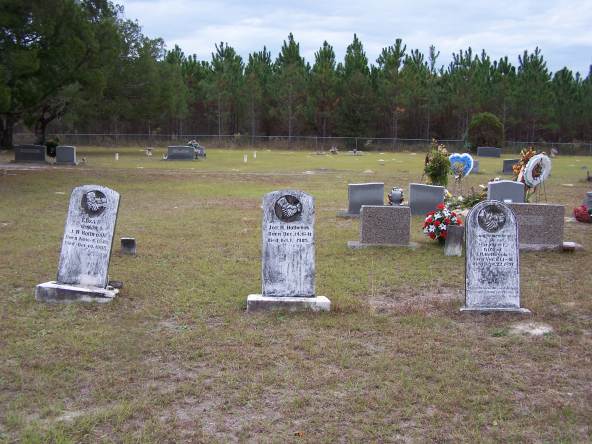
_________________________
New Photos Taken 10.07.2019
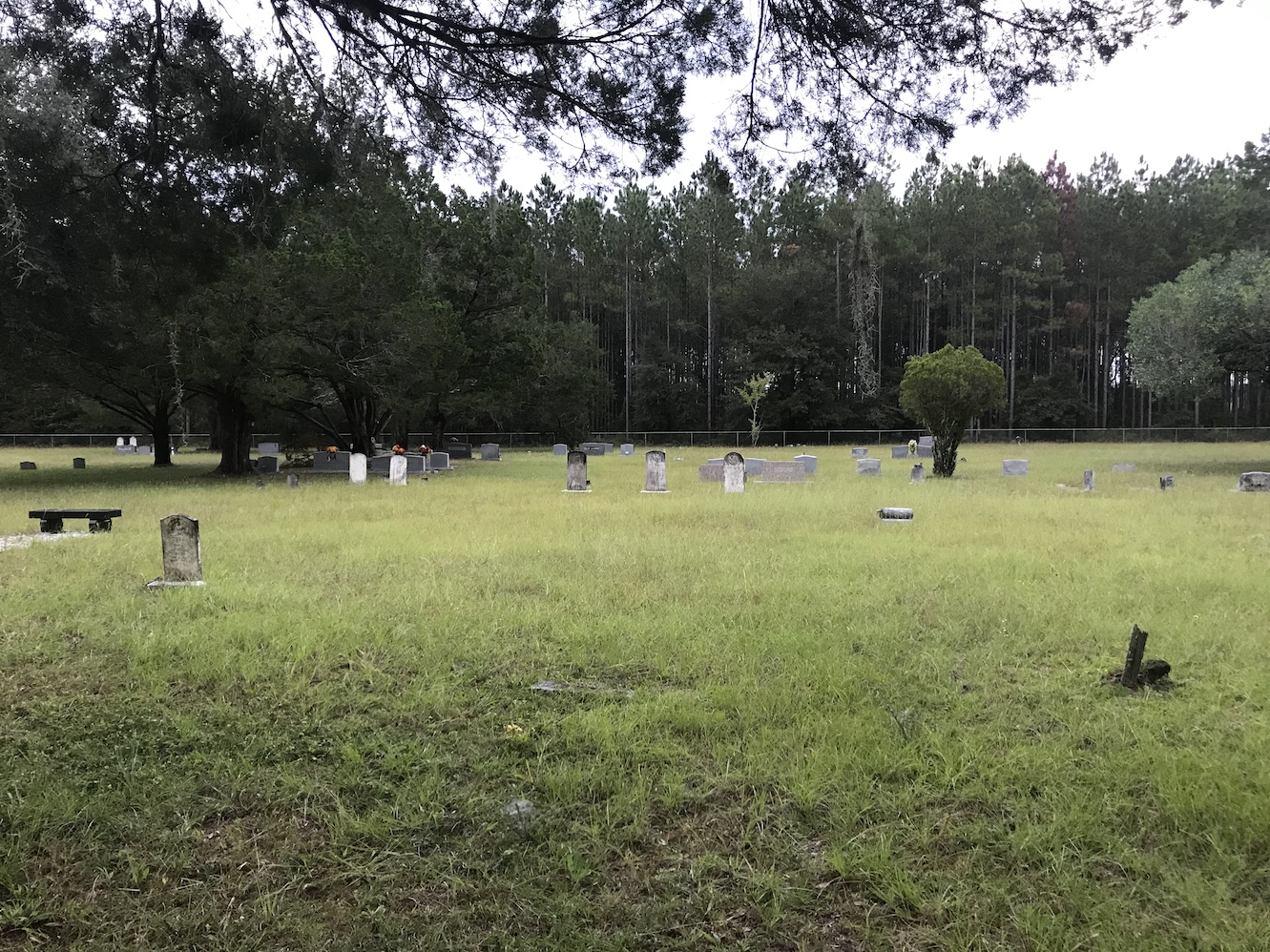
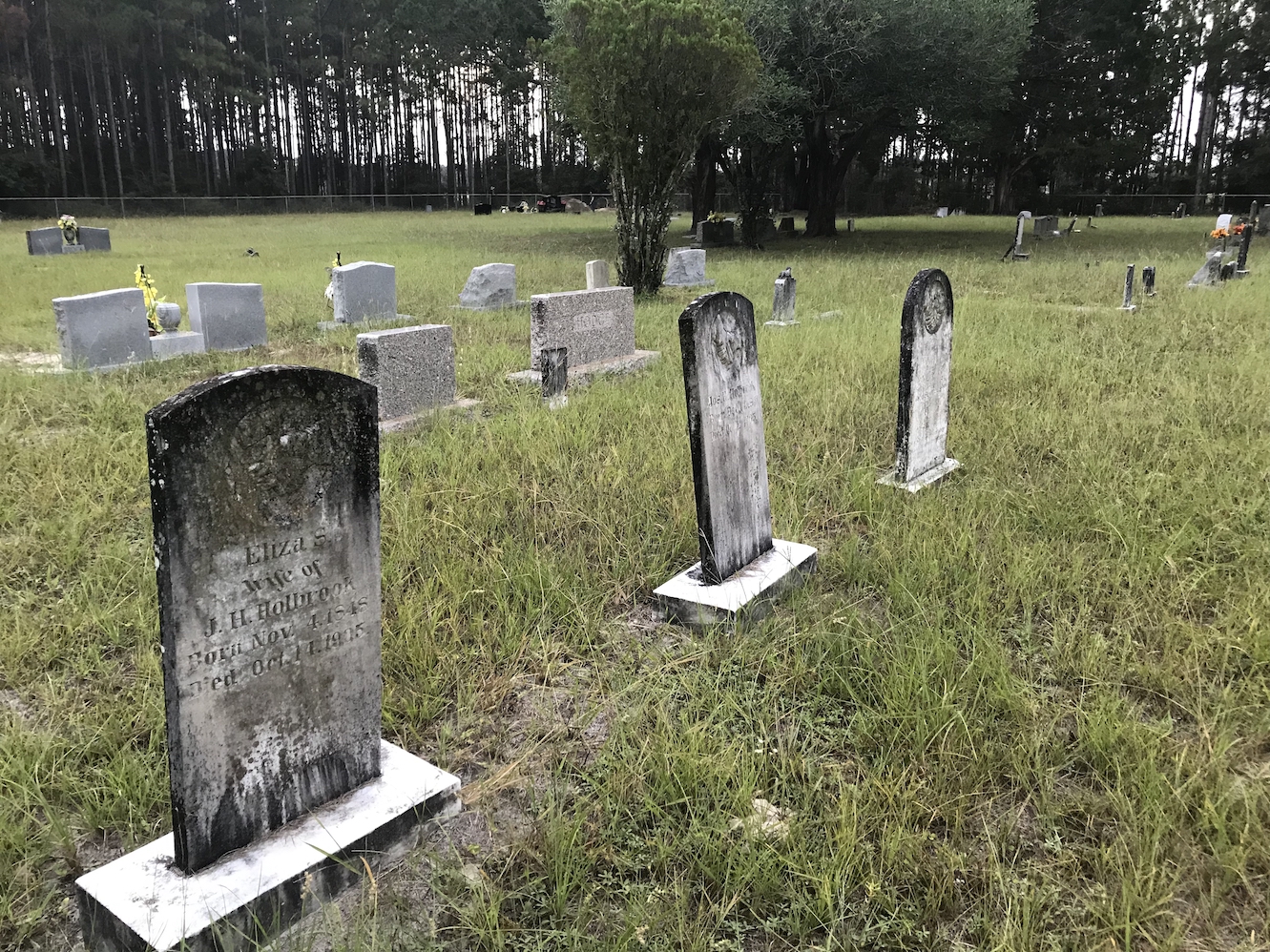
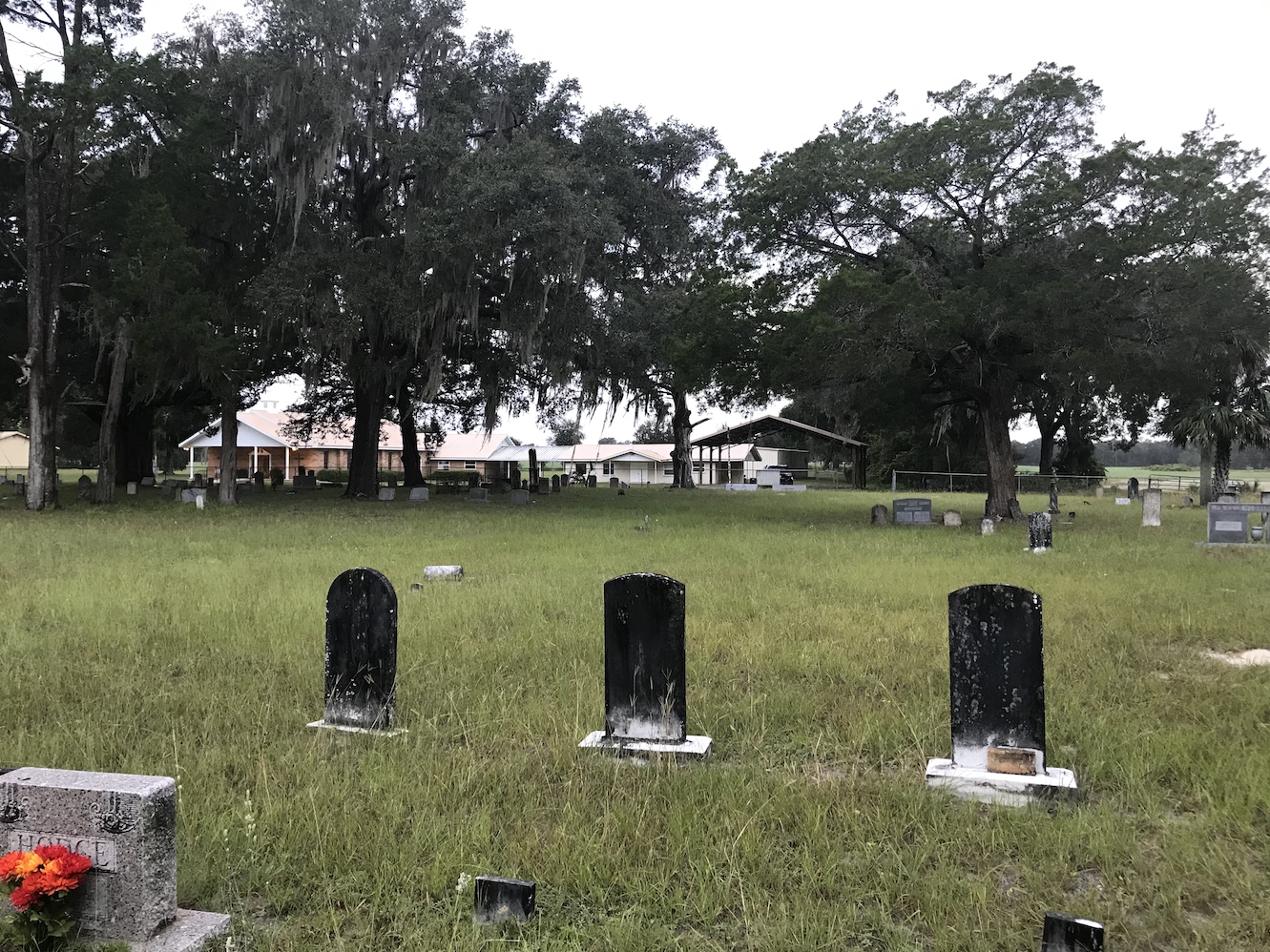
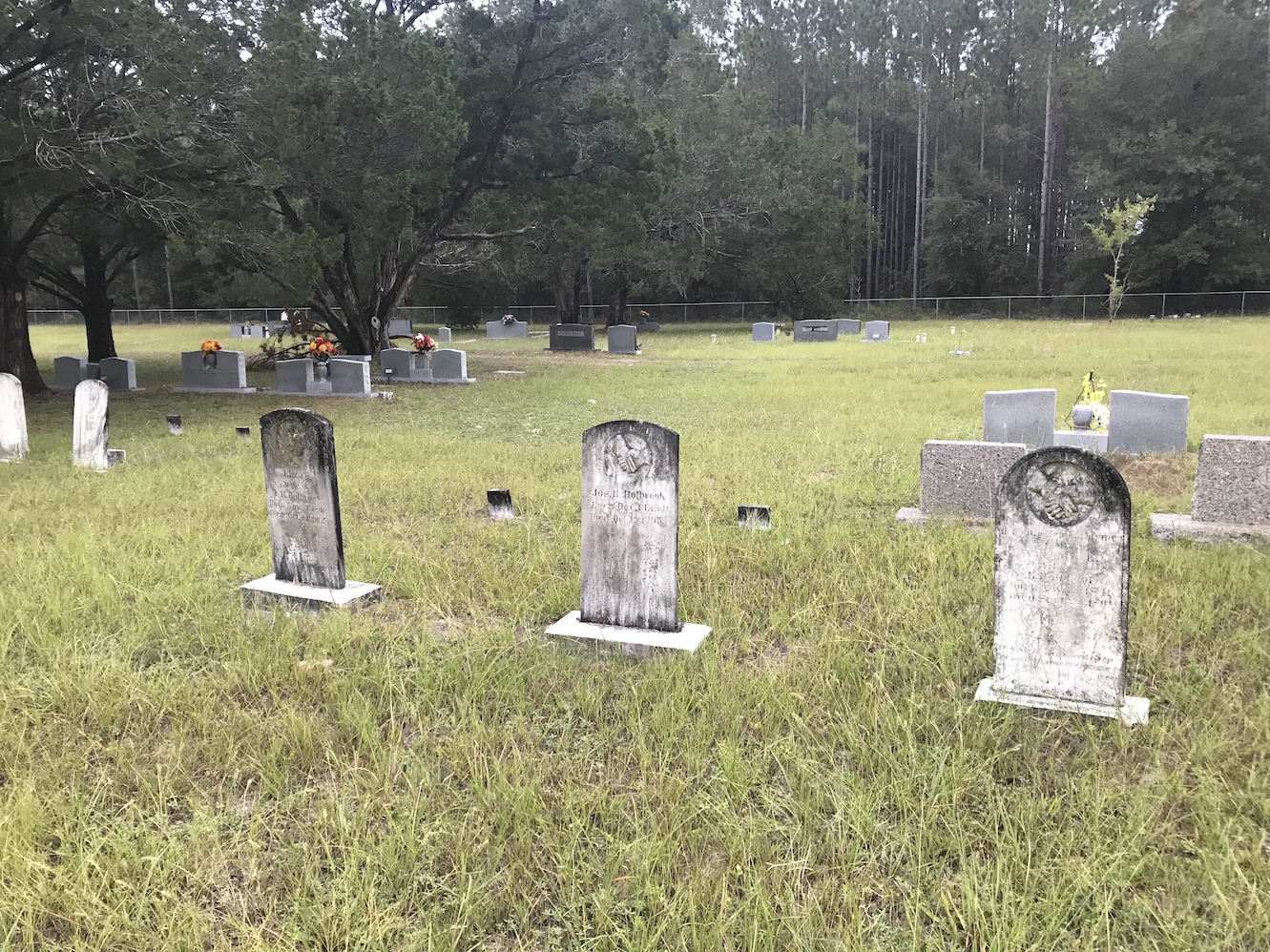
![]()
*Holbrook, is sometimes spelled Halbrook, Hallbrook, Halbrooke, in different writings. His first wife, Margaret died Sept. 22, 1891. Her stone records, "Wife Of J.H. Holbrook." The stone of his second wife, Eliza S., who incidentally, died 13 days after her husband, renders her as "wife of J.H. Holbrook," hence, the spelling with an "o."
![]()
